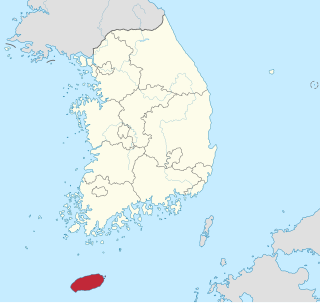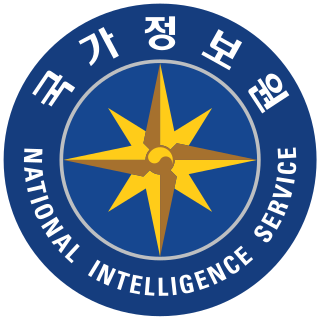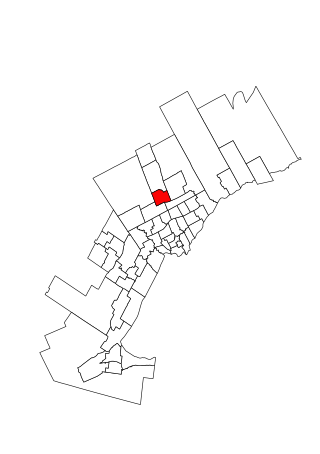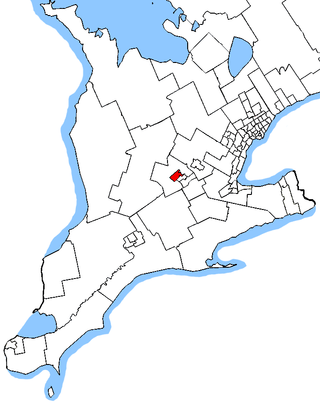Contents
| |||||
| Centuries: | |||||
|---|---|---|---|---|---|
| Decades: | |||||
| See also: | Other events of 2003 Years in North Korea Timeline of Korean history 2003 in South Korea | ||||
Events from the year 2003 in North Korea.
| |||||
| Centuries: | |||||
|---|---|---|---|---|---|
| Decades: | |||||
| See also: | Other events of 2003 Years in North Korea Timeline of Korean history 2003 in South Korea | ||||
Events from the year 2003 in North Korea.

The Korean War was an armed conflict on the Korean Peninsula fought between North Korea and South Korea and their allies. North Korea was supported by the People's Republic of China and the Soviet Union, while South Korea was supported by the United Nations Command (UNC) led by the United States. The conflict was the first major proxy war of the Cold War. Fighting ended in 1953 with an armistice but no peace treaty, leading to the ongoing Korean conflict.

North Korea, officially the Democratic People's Republic of Korea (DPRK), is a country in East Asia. It constitutes the northern half of the Korean Peninsula and borders China and Russia to the north at the Yalu (Amnok) and Tumen rivers, and South Korea to the south at the Korean Demilitarized Zone. The country's western border is formed by the Yellow Sea, while its eastern border is defined by the Sea of Japan. North Korea, like its southern counterpart, claims to be the sole legitimate government of the entire peninsula and adjacent islands. Pyongyang is the capital and largest city.

South Korea, officially the Republic of Korea (ROK), is a country in East Asia. It constitutes the southern half of the Korean Peninsula and borders North Korea along the Korean Demilitarized Zone. The country's western border is formed by the Yellow Sea, while its eastern border is defined by the Sea of Japan. Like North Korea, South Korea claims to be the sole legitimate government of the entire peninsula and adjacent islands. It has a population of 51.96 million, of which half live in the Seoul Metropolitan Area, the ninth most populous metropolitan area in the world. Other major cities include Busan, Daegu, and Incheon.

Kim Dae-jung was a South Korean politician and activist who served as the eighth president of South Korea from 1998 to 2003.

The division of Koreade facto began on 2 September 1945, when Japan signed the surrender document, thus ending the Pacific Theater of World War II. It was officially divided with the establishment of the two Koreas in 1948. During World War II, the Allied leaders had already been considering the question of Korea's future following Japan's eventual surrender in the war. The leaders reached an understanding that Korea would be liberated from Japan but would be placed under an international trusteeship until the Koreans would be deemed ready for self-rule. In the last days of the war, the United States proposed dividing the Korean peninsula into two occupation zones with the 38th parallel as the dividing line. The Soviets accepted their proposal and agreed to divide Korea.
The Liberty Korea Party (Korean: 자유한국당) was a conservative political party in South Korea that was described variously as right-wing, right-wing populist, or far-right. Until February 2017, it was known as the Saenuri Party, and before that as the Hannara Party from 1997 to 2012, both of which are still colloquially used to refer to the party. The party formerly held a plurality of seats in the 20th Assembly before its ruling status was transferred to the Democratic Party of Korea on 27 December 2016, following the creation of the splinter Bareun Party by former Saenuri members who distanced themselves from President Park Geun-hye in the 2016 South Korean political scandal.

London West is a federal electoral district in London, Ontario, Canada, that has been represented in the House of Commons of Canada since 1968.

York Centre is a federal electoral district in Ontario, Canada, that has been represented in the House of Commons of Canada from 1904 to 1917 and since 1953.

The Jeju uprising, known in South Korea as the Jeju April 3 incident, was an uprising on Jeju Island from April 1948 to May 1949. A year prior to its start, residents of Jeju had begun protesting elections scheduled by the United Nations Temporary Commission on Korea (UNTCOK) to be held in the United States-occupied half of Korea, which they believed would entrench the division of the country. A general strike was later organized by the Workers' Party of South Korea (WPSK) from February to March 1948. The WPSK launched an insurgency in April 1948, attacking police and Northwest Youth League members stationed on Jeju who had been mobilized to suppress the protests by force. The First Republic of Korea under President Syngman Rhee escalated the suppression of the uprising from August 1948, declaring martial law in November and beginning an "eradication campaign" against rebel forces in the rural areas of Jeju in March 1949, defeating them within two months. This resulting campaign has lead to the event being called the Jeju massacre. Many rebel veterans and suspected sympathizers were later killed upon the outbreak of the Korean War in June 1950, and the existence of the Jeju uprising was officially censored and repressed in South Korea for several decades.

The National Intelligence Service is the chief intelligence agency of South Korea. The agency was officially established in 1961 as the Korean Central Intelligence Agency, during the rule of general Park Chung Hee’s military Supreme Council for National Reconstruction, which displaced the Second Republic of Korea. The original duties of the KCIA were to supervise and coordinate both international and domestic intelligence activities and criminal investigations by all government intelligence agencies, including that of the military. The agency’s broad powers allowed it to actively intervene in politics. Agents undergo years of training and checks before they are officially inducted and receive their first assignments.

Elections in North Korea are held every four-to-five years for the Supreme People's Assembly (SPA), the country's national legislature, and every four years for Local People's Assemblies. Each candidate is preselected by the North Korean government and there is no option to write in other candidates, meaning that voters may either submit the ballot unaltered as a "yes" vote or request a pen to cross out the name on the ballot. Critics argue that North Korean elections are show elections which lack competition and allow the government to claim a veneer of pseudo-democratic legitimacy. A person's vote is not kept anonymous, and those who cross off the name on a ballot are often subject to legal and professional consequences. According to official reports, turnout is near 100%.

Don Valley East is a federal electoral district in Ontario, Canada that covers the northeast section of the North York part of Toronto. The federal riding was created in 1976 from parts of Willowdale, York East, York North, and York—Scarborough ridings.

Willowdale is a federal electoral district in Toronto, Ontario, Canada. It has been represented in the House of Commons of Canada since 1979. It is the riding with the biggest Korean community in Canada. As per the 2021 census, 9.9% of the population of Willowdale is Korean.

Richmond Hill is a federal electoral district in Ontario, Canada, that has been represented in the House of Commons of Canada since 2004.

Waterloo is a federal electoral district in the Waterloo Region of Ontario, Canada, that has been used in the House of Commons of Canada from since 1968. Between 1997 and 2015, the riding was known as Kitchener—Waterloo.

Park Geun-hye is a South Korean politician who served as the 11th president of South Korea from 2013 to 2017. Park was the first woman to be elected president of South Korea, and also the first woman to be popularly elected as a head of state in East Asia. She is also the first South Korean president to be born after the founding of South Korea. Her father, Park Chung Hee, was president from 1963 to 1979, serving five consecutive terms after he seized power in 1961.

The President of the State Affairs Commission of the Democratic People's Republic of Korea, alternatively styled "President of State Affairs" in official translations, is the supreme leader and head of state of North Korea. The president chairs the State Affairs Commission (SAC), which is the highest leadership institution in North Korea, and serves as the commander-in-chief of the North Korean armed forces.

Roh Moo-hyun was a South Korean politician and lawyer who served as the ninth president of South Korea between 2003 and 2008.

Moon Jae-in is a South Korean politician and former lawyer who served as the 12th president of South Korea from 2017 to 2022. Before his presidency, he served as Senior Secretary for Civil Affairs and Chief of Staff to President Roh Moo-hyun, Member of the National Assembly, and Leader of the Democratic Party of Korea.

The 10th Cabinet of North Korea was elected by the 1st Session of the 10th Supreme People's Assembly of North Korea on 5 September 1998. It was replaced on 3 September 2003 by the 11th Cabinet.